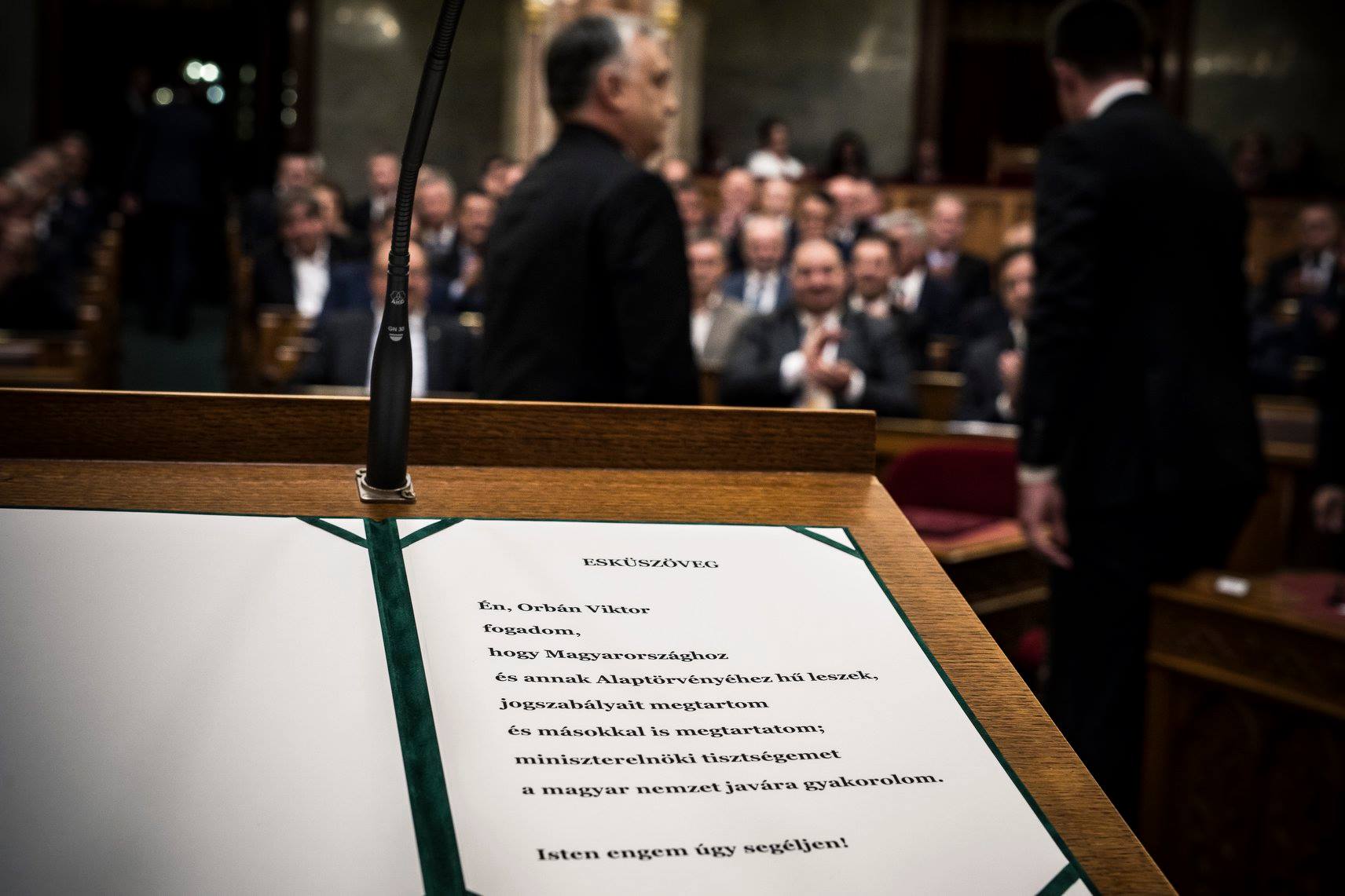Hungary – The nationalist movement Mi Hazánk (Our Homeland), which has recorded 7% in a recent poll of voting intentions conducted by the Medián Institute, could well pull off a surprise in the parliamentary elections to be held in Hungary on 3 April.
According to a source close to the Hungarian government, Mi Hazánk is more likely to get some 10–11% of the vote in April, since the poll, commissioned by the left-wing media HVG, concerns the entire electorate and does not take into account voter abstention, which, according to this source, would not affect Mi Hazánk as much as the other parties in the race.
With more than two months to go before the elections, it is difficult to know whether the party of Ásotthalom Mayor László Toroczkai will pass the 5% threshold to enter parliament. However, this party, which was created in 2018 and was polling 2–3% six months ago, could well gather momentum thanks to its clear position on the health issue.
In January 2021, Mi Hazánk became the first political party to openly position itself against the health restrictions. Since then, it has not deviated from its line, remaining the only political force in Hungary to maintain a deeply critical stance on this issue. The nationalist party has made the health issue its main campaign theme and speaks bluntly of a “Covid dictatorship”.
Being opposed to compulsory vaccination – which in Hungary only concerns certain professions, but can also be imposed by an employer – and to public health restrictions, Mi Hazánk regularly organizes demonstrations and takes a line with which Hungarian voters have perfectly identified, even though the party is subject to censorship on social networks, just like the Konfederacja movement in Poland.
Mi Hazánk is viewed as having in its ranks some of the most radical figures on the Hungarian political scene, but it is still possible that it will make an electoral breakthrough on 3 April, and there are three main reasons for this.
First, the cordon sanitaire that has long prevented this party from claiming respectability is seriously damaged. In private conversations in Budapest, a vote for Mi Hazánk is no longer seen by cosmopolitan leftist voters as the mark of a despicable and condemnable movement prone to crypto-fascist romanticism, but as a choice that has become politically understandable and even morally acceptable. The first to have raised, as early as last autumn, the possibility of a rise of Mi Hazánk were none other than the liberal journalists András Hont and Zoltán Ceglédi, known for their sceptical stances on Covid issues. On 15 January, left-wing lawyer and former LMP leader András Schiffer spoke in Kossuth Square at a demonstration against compulsory vaccination of teachers, an event that also included a speech by journalist Árpád Szakács, who used to be a supporter of Viktor Orbán’s government, but is now close to Mi Hazánk.
Second, in Hungary, ideology is a marginal factor in voters’ choices. Contrary to popular belief, there are very few sincere and uncompromising nationalists in Hungary. The vast majority of Hungarians vote for their interests and/or for or against clan leaders, and only to a very small extent for their “ideas”.
However, there is a large reservoir of votes that can be tapped by rejecting public health restrictions, and Mi Hazánk seems to have also come to the conclusion that it had to make the debate personal. It has decided to put the face of its leader on its posters, and Laszló Toroczkai now presents himself as “the only unvaccinated candidate for the post of Prime Minister”.
Third, Mi Hazánk has a reputation as a “semi-opposition” party and as a party that is tasked by the government with raising new topics, especially on the LGBT issue. In any case, Fidesz can hardly go head-on into a conflict with Mi Hazánk, and at this stage has no other choice than to let this party rise. The main unknown, of course, is whether Mi Hazánk’s upward trend in the polls reflects reality. There is no doubt, however, that the nature of this party’s role on the Hungarian political scene is changing.




